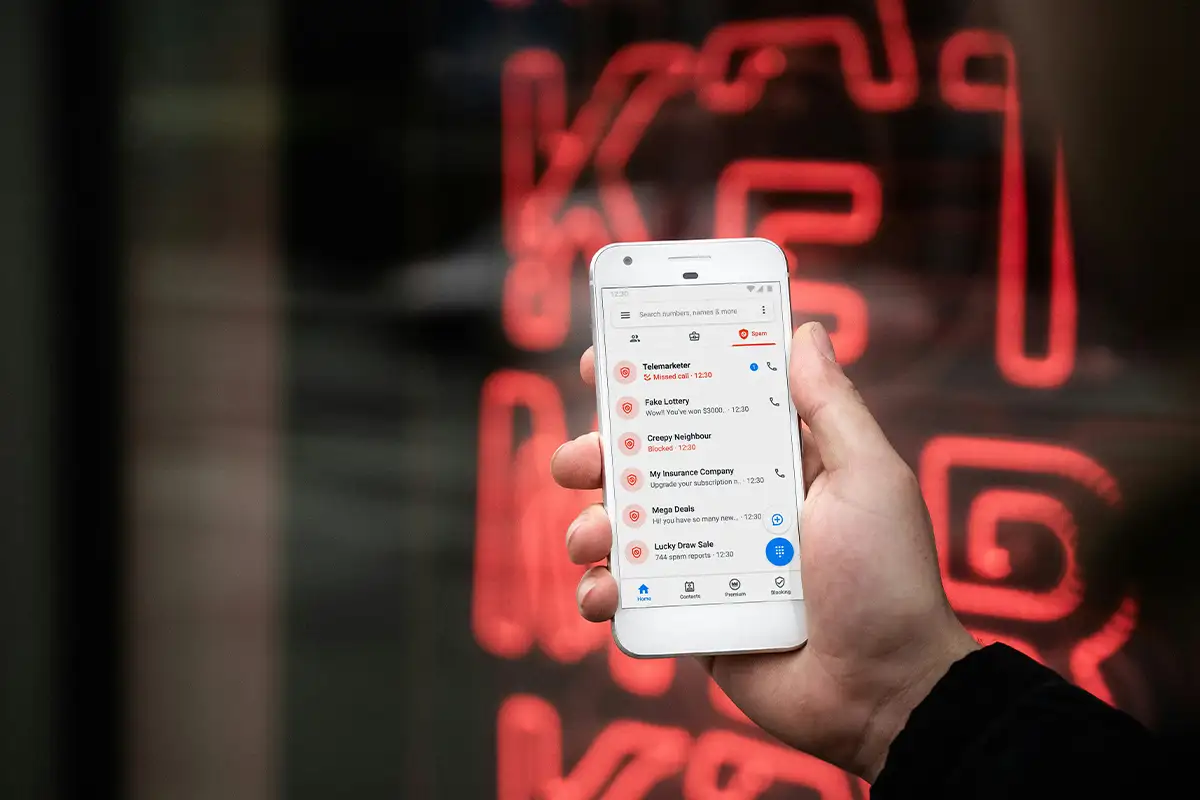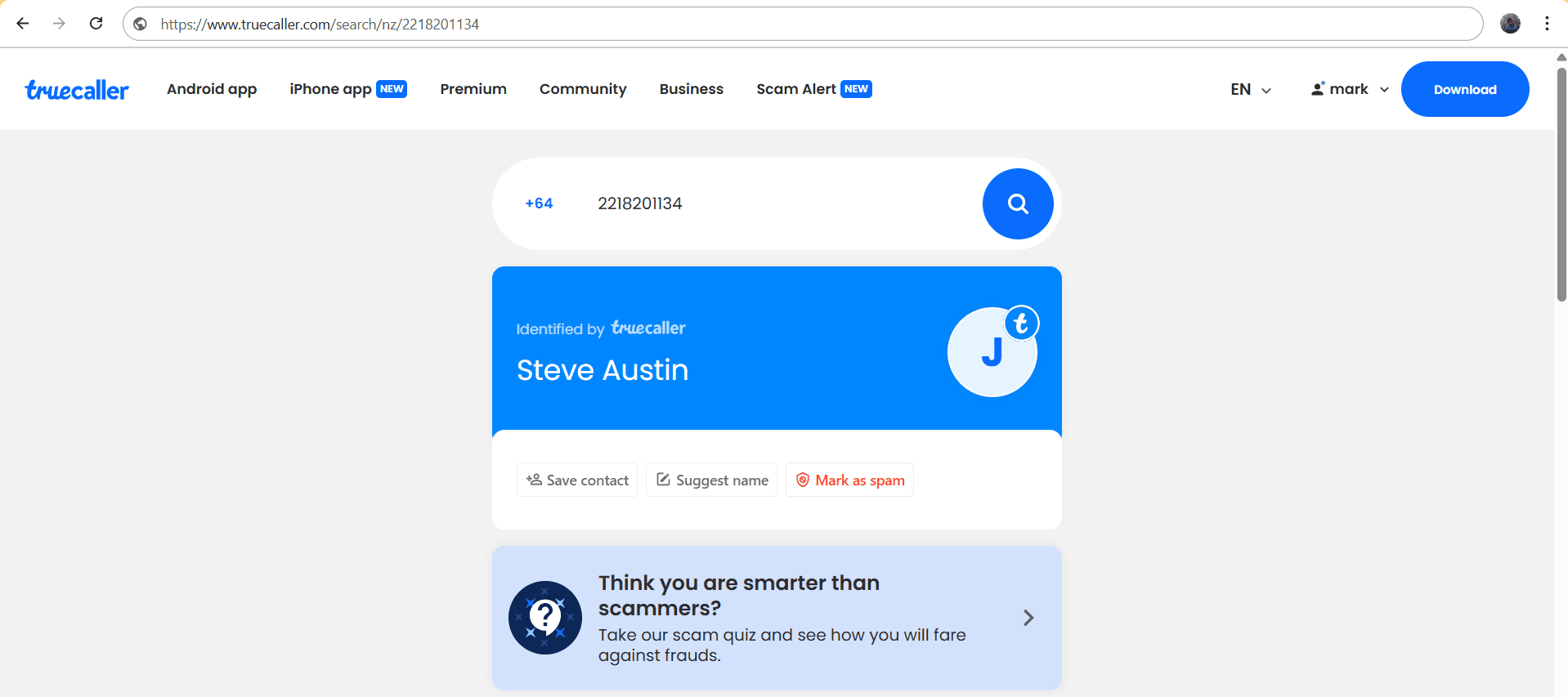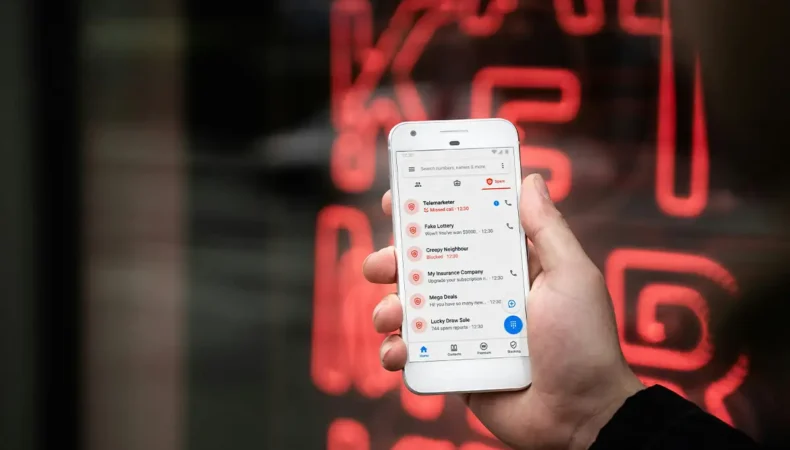Have you ever had an unknown number call you and thought, “Who the hell is calling me from this number in NZ?” You’re not alone. As telemarketing, courier updates, and sadly, scam calls, are becoming more common in calling Kiwis out of the blue in New Zealand. But understanding how to spot these callers can save you time and safeguard your personal information. Whether it’s a nuisance voicemail left from a missed delivery or a possible scam call. In this Article, we will have a look at the best missed call tracking methods for New Zealand, and how tools like Truecaller can show you who’s calling you.
Call from an Unknown Number? Here are the possibilities

Receiving calls out of the blue from unfamiliar or suspicious phone numbers is an all-too-familiar experience for a large number of Kiwis. In some cases, these calls are completely legitimate, rest can be obtrusive or even unsafe. Knowing the motivations behind these mystery calls can help you determine your reply and when to be cautious. These are some of the popular types of calls from an unknown number in NZ.
#1:- Missed Business Calls
If you have recently filled out a form online, applied for a job, or reached out to a company for services or support, there’s a good chance it’s a real call. A lot of New Zealand businesses use multiple departments, and some use outsourced call centres or VOIP systems that don’t show a known number on caller ID. Furthermore, there may be calls from mobile phone numbers or private extensions unrelated to the company’s main contact number.
There is also a chance to get a call from a business to collect your experience with them. For example, if you contacted your network provider for a WiFi issue, they might call you to check if the issue is resolved or not.
#2:- Courier and Delivery Services
Delivery drivers, both from big couriers including NZ Post, New Zealand Couriers, Post Haste and food delivery platforms such as UberEats or DoorDash, tend to call customers on personal phones or company-issued mobiles. These numbers are not something you can easily find, as they often come up as unknown or private if the driver is using a temporary or masked number system. If you’re waiting for a package or food delivery, it could be worth a glance at your recent orders before declining the call.
#3:- Telemarketing and Polling Calls
Telemarketing is still a relevant part of business and surveying in New Zealand. Market researchers or salespeople can call to administer surveys or make offers, occasionally on behalf of big brands or government-financed studies. And while some of these phone calls may be legitimate, many recipients feel they cross a line, particularly if they are frequent or at inconvenient times. And it’s well worth mentioning that legitimate pollsters usually reveal who they are fairly early in the call.
Are you moving out to a new rental property? You might get telemarketing calls from Broadband or Power providers.
#4:- Scam or Fraud Calls
Scam calls have also been increasing throughout New Zealand. This type of call frequently involves what is known as “number spoofing”, where a caller obscures their real number so it looks to be local — it can also mimic well-known area codes, such as 09 (Auckland) and 03 (Christchurch). The goal is to get you to reply before the sender hits you with a request for your personal, financial or login details. Other scammers pretend to be government agencies such as Inland Revenue (IRD), NZTA or even locally based banks. If there’s ever a doubt, it’s best to hang up and call the organisation directly, using verified contact details.
One of the recent studies by MBIE states that Kiwis lost around $198 million through scams in the year 2022-2023. So if you suspect something scam or fraud during a call, don’t give any sensitive information.
Most Common Types of Scam Calls in NZ
Scam calls are becoming more of a problem around New Zealand, and the fraudsters are getting better at getting their hands on personal information and money. If you take the time to learn the most common scam calls today, you will be more likely to recognise and avoid them. Here are some of the reported scam call types in NZ:
NZ Police or IRD Scams:
These scammers regularly claim to be a staff member of the New Zealand Police or the Inland Revenue Department (IRD). These callers may claim that:
- You have overdue taxes or fines due.
- You have a warrant for your arrest.
- Immediate payment will be enforced unless legal action is taken.
They intimidate — and sometimes spoof what appear to be official numbers to make their claims more credible. Sometimes they demand you pay with gift cards, cryptocurrency or wire transfers — not something any will ever ask you to do.
Tip: IRD or NZ Police in person would never request any payments over the phone or threaten with arrest without due process.
Bank Account Fraud Alerts:
In this method, the scammers claim to be from popular New Zealand banks like ANZ, BNZ, ASB, or Westpac. They usually claim:
- There’s suspicious or unusual activity on your account.
- Your account is at risk and needs to be “secured.”
- ‘You need to verify/revoke your account credentials.
Victims could be requested to enter login details, credit card numbers or confirm fraudulent transactions through a bank’s app.
Tip: Hang up and call your bank directly using the number on its website. Do not return any of the phone numbers received from the suspicious call.
Tech Support Scams:
Tech support scams are one of the most common, but a new player has emerged in New Zealand. Callers who are after a tech support scam usually claim they are from Spark, OneNZ, 2degrees, Microsoft, etc.
They may claim:
- Your internet has been disconnected.
- A virus has been detected on your device.
- Hackers are using your router.
The idea is to hoodwink you into allowing remote access to your computer or into installing malware. In some cases, they’ll try to install fake software or collect a payment to “fix” problems that aren’t there.
Tip: Real tech support companies don’t cold call people. Never grant remote access unless you initiated the support session.
Missed a Call in NZ? Check It Instantly with Truecaller Website or Mobile App
Truecaller is a popular mobile app that enables users to identify unknown numbers in real-time. There’s a huge amount of spam calls that can be avoided with Truecaller if it’s installed on your Android or iOS device. Even though you don’t have this installed on your mobile, you can search the number on the Truecaller website to identify the caller’s details.
How is Truecaller helping Kiwis identify unknown calls?
In New Zealand, Truecaller has been embraced as a lifeline to prevent spam, scams and unnecessary call-backs. Here’s how it works:
Instant Caller ID:- If it is installed on your mobile device, you will be able to see the name of the caller even if the contact is not saved. Thus, you can decide whether to accept or decline the call.
SMS spam blocking:- If you see many spam SMS on your mobile, this is a great tool to use. By enabling this feature, you can avoid such spam messages.
Spam Detection:- Get real-time alerts warning you of incoming spam and scam calls, and report fraudulent callers.
To use the Truecaller service
Step 1:- Go to Truecaller.com
Step 2:- Sign up for an account.
Step 3:- In the search box provided, input the number to track.

You can now see the name of the caller. Alternatively, you can use their Android or iOS app to search for a phone number.
Final Thoughts
In this modern tech world, where unknown numbers may mean anything from a skipped delivery to scam attempts, tools like Truecaller offer a practical first line of defence for Kiwis who are eager to sort out obscure phone calls. With real-time caller ID and community-based spam alerts, they give users the information they need to make informed decisions about whether or not to pick up the phone. No tool is perfect, of course, but using a service like Truecaller can greatly increase the chances that you will know who is calling before you answer.
Either way, watch out for an unknown call; if unsure, you might want to double-check before taking the call.’ Whether you use an app that displays caller IDs, do some Googling after receiving a call or wait to see if your phone rings again so they can leave a message, taking just a little time can end up sparing you from scams or unwanted solicitation.
Last modified: June 16, 2025








